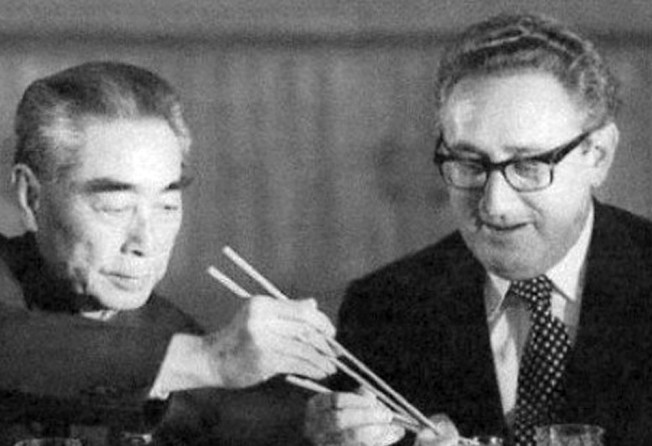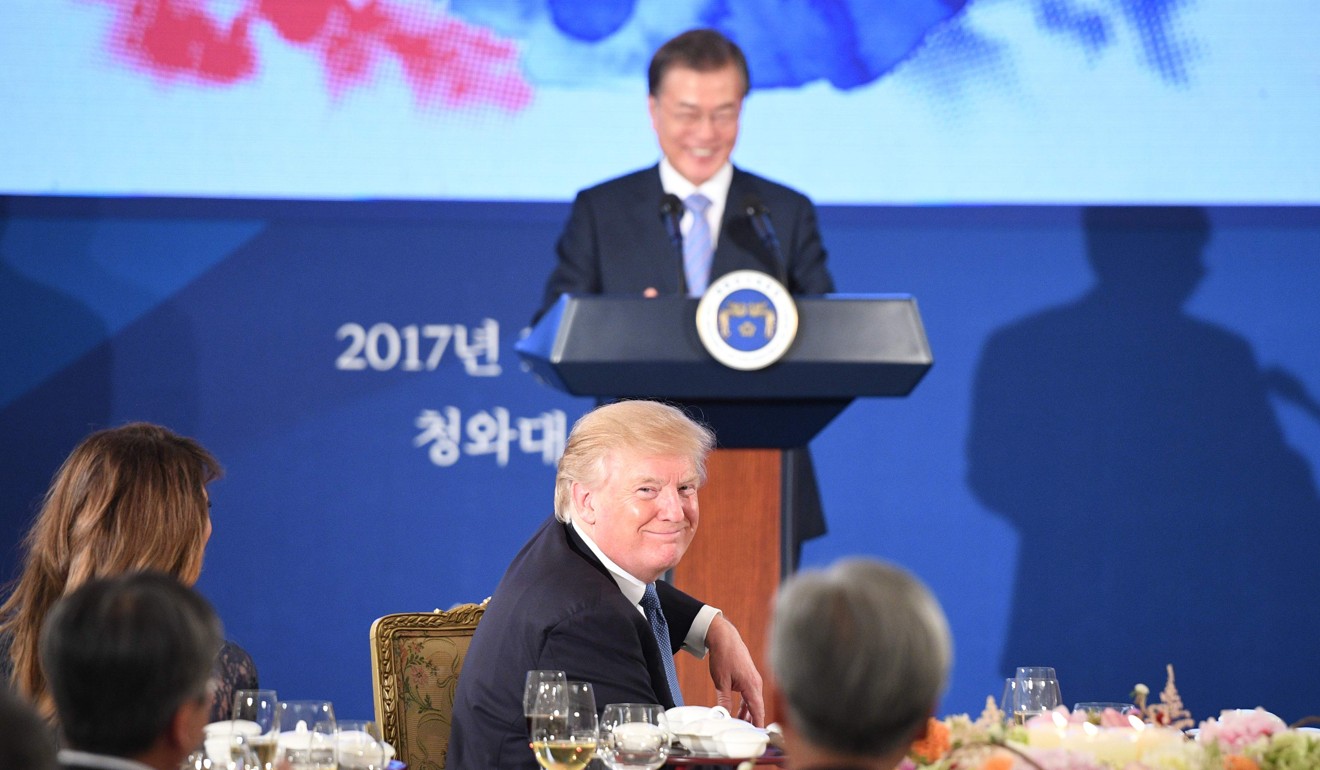Can China’s chefs charm Donald Trump like they did with Henry Kissinger in 1971?
The US president will be served the finest foods China has to offer on Thursday evening, but will any of it have the ‘Peking duck effect’

It is unlikely that Donald Trump was aware of the diplomatic row his dinner in Seoul on Tuesday evening caused between Japan and South Korea, but Chinese officials, and chefs, are not expected to take any chances when the US president sits down for a banquet in Beijing on Thursday.
The problem in Seoul was down to the fact that the prawns served to Trump and his wife Melania as part of a four-course dinner at the presidential Blue House had been caught near a disputed island claimed both by South Korea and Japan.
The Seoul-controlled island – called Dokdo in South Korea and Takeshima in Japan – is at the heart of a decades-long territorial dispute and diplomatic row between the two countries.
A Japanese government spokesman said it was important to avoid any actions that would have a negative impact on relations between Tokyo, Seoul and Washington. South Korean President Moon Jae-in’s office responded by saying the menu was prepared to convey the formality of a state visit and to represent the “solid alliance” of South Korea-US relations.

While the menu for Thursday’s banquet at the Great Hall of the People is a closely guarded secret, it is fair to assume it will include a good selection of China’s culinary favourites.
State banquets hold great significance in Chinese diplomatic relations.
According to popular accounts, on July 10, 1971, after a morning of deadlocked talks between Zhou Enlai and visiting US secretary of state Henry Kissinger in Beijing, China’s then premier arranged for his guest to be served Peking duck for lunch.
The popular delicacy of roasted duck served in a pancake with spring onions, cucumber and hoisin sauce did the trick.
In the afternoon, the atmosphere was noticeably more relaxed and the two men agreed on the details for the planned visit of Richard Nixon, who months later in 1972 became the first US president to visit the People’s Republic of China since its founding in 1949.
“After a dinner of Peking duck, I’ll agree to anything,” Kissinger was quoted as saying in a report published years after his trip.
While Trump is known for his parochial palate – his favourite dish is a well-done steak served with tomato ketchup – there is every chance he will be served Peking duck on Thursday. After proving its worth as an aid to negotiations in 1971 it quickly became a regular on the menu for state banquets.
State dinners are big productions in China, usually involving more than 160 chefs, according to a report published by People’s Daily in 2015.
When designing a menu, as well taking into consideration seasonal factors and nutritional values, the chefs “try to understand the guest’s tastes, age and state of health”, the report said.
A Chinese diplomatic source told the South China Morning Post that the preparation of a state banquet must “reflect the significance of the guest … and not make it seem that the guest is unimportant”.
In Tokyo, probably much to his delight, Trump was served a hamburger made from US beef. China was unlikely to be quite so informal as it would want to showcase the best of its cuisine, the source said.
“It’s a tradition that Beijing serves Chinese traditional food to foreign leaders. Exotic flavours might be included, but they won’t be the main course,” he said.
“By serving the best food a country has, the host can make guests more relaxed before they go to the negotiating table.”